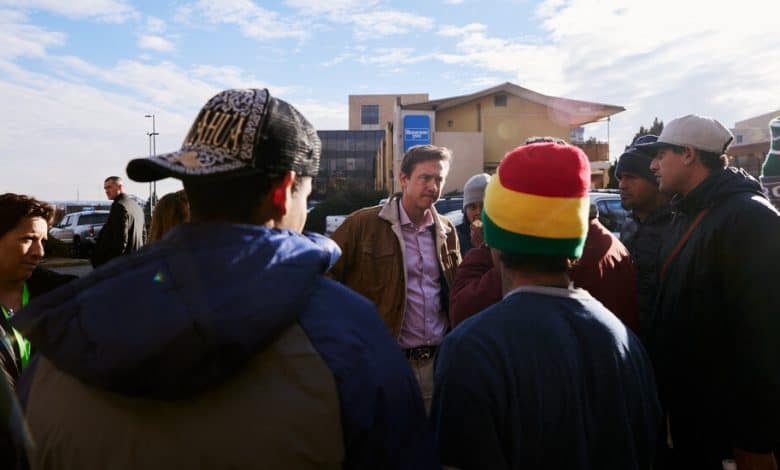Big Burden of Migrant Influx Strains Denver

Supported by
SKIP ADVERTISEMENT
Big Burden of Migrant Influx Strains Denver
The city has marshaled resources for the new arrivals, but after Congress rejected a deal aimed at slowing the flow of migrants, its support system is starting to buckle.
-
Share full article

Mayor Mike Johnston said Denver would have to “make changes to what we can do in terms of our city budget, and what we can do in terms of support for newcomers.”Credit…Jimena Peck for The New York Times

By Miriam Jordan
Reporting from Denver
In his first six months in office last summer, the mayor of Denver, Mike Johnston, managed to get more than 1,200 homeless people off the streets and into housing. That seemed like a fitting feat for a city that prides itself on its compassion.
It would turn out to be a footnote compared with the humanitarian crisis that Denver would soon face as thousands of migrants flooded the city, many of them bused from the southern border by Gov. Greg Abbott of Texas and almost all of them in need of shelter and support.
By last month, Denver, a city of 750,000, had received nearly 40,000 migrants, the most per capita of any city in the nation, even as the flow of migrants slowed in the deep chill of winter. And the city has begun to feel the same sort of strains that have confronted New York and Chicago as they contended with their own migrant influxes.
Denver, the state capital and the center of a sprawling metropolitan area of more than 3 million people, has spent more than $42 million on the migrants. If expenditures continue at the current pace of $3.5 million a week, the crisis could cost the city about $180 million in 2024, or 10 percent or more of its annual budget.
The city has begun discharging dozens of families from hotels that it rented to house them temporarily, creating fresh hardship for those being displaced. And this week, the city will begin imposing a first round of budget cuts unrelated to migrant services, starting with reductions in parks and motor vehicle services.
Like mayors in New York, Chicago and elsewhere, Mr. Johnston had been making increasingly desperate requests for help from the White House and Congress.
We are having trouble retrieving the article content.
Please enable JavaScript in your browser settings.
Thank you for your patience while we verify access. If you are in Reader mode please exit and log into your Times account, or subscribe for all of The Times.
Thank you for your patience while we verify access.
Already a subscriber? Log in.
Want all of The Times? Subscribe.
